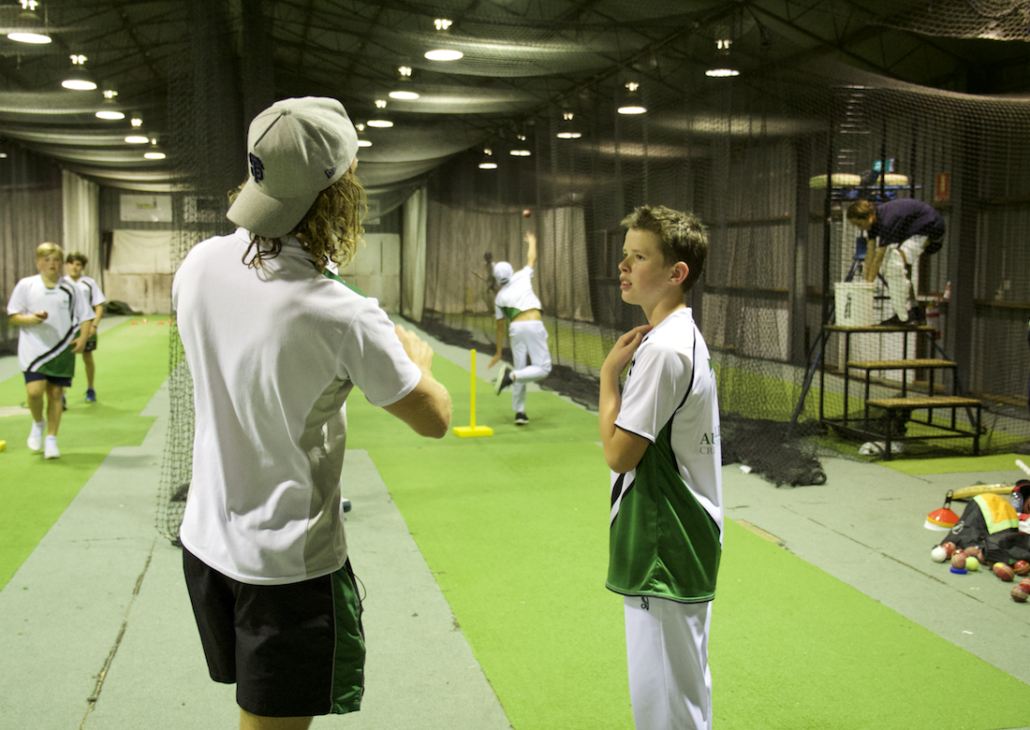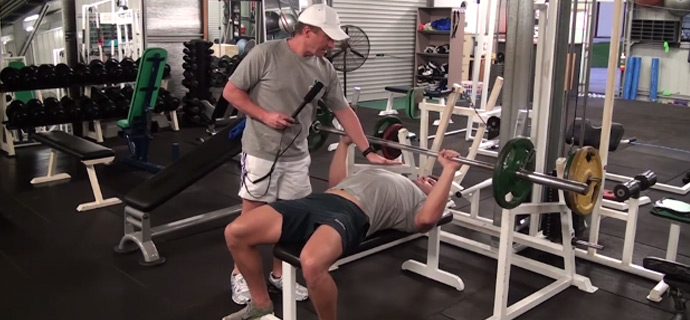Every parent wants their child to perform in the sport they love, so they can enjoy it, develop confidence and improve their self worth.
Doing well rubs off on other areas of their life as well.
It’s a fine line, you don’t want to get too pushy or involved because that can have the opposite effect.
Here are three things you can do without being overbearing…
1. ENSURE THEY’RE IN A GOOD MENTAL SPACE
A rough week at school, some bad news, a fight with a sibling or friend…
Whatever it is, cricketers need to go to sleep the night before and wake up the morning of a game in a good mental space.
The importance of the mental side of the game in cricket is becoming more and more prevalent and more time is being invested into developing that skill in an athlete.
As a parent you can help shift their mindset when you detect something is off, here’s a couple of simple ideas…
TALK IT OUT
Talk out their issues with them, some kids don’t like sharing and discussing so you need to do it in a non-threatening and non-judgmental way.
Getting it off their chest can make a big difference and help them let it go.
Go one step further and see if you can help them find a lesson in it that they can be grateful for.
PRACTICE GRATITUDE
Get them to write down three things they’re grateful for in their life and then visualise each one vividly for 60 seconds.
Gratitude is proven to actually change the physiology of your brain, i.e. the way in which we function.
Do this right before bed the night before a game and I promise you they’ll wake up in a much better frame of mind having gone to sleep with those thoughts of gratitude at the front of their mind.
DO SOMETHING FUN
Sometimes their negative mindset can be self prescribed by nerves and anxiety about cricket.
Take them out to do something fun that they enjoy the night before a game and get their mind off cricket.
LEARN HOW WE CAN HELP DEVELOP YOUR CHILD >> ACI JUNIOR ACADEMY INFORMATION
2. LET THEM KNOW THERE’S NO PRESSURE FROM YOUR END
A lot of parents will never understand how much pressure their child puts on themselves because they want to impress you! Even if you don’t put pressure on them.
You can help with that.
If you are someone that occasionally pulls yourself up after making a pressure loaded comment, make a conscious effort to refrain from them.
Things like “It’s a big game tomorrow”, “You need some runs tomorrow”, “Don’t make the same mistake as last week.” These terms have absolutely no benefit, kids already put enough pressure on themselves without having Mum or Dad add to it.
If you’re someone that doesn’t do that but your child is still visibly affected by nerves and anxiety, let them know that you’re not going to think any more or less of them because they get 100 or a duck.
Have discussions with them and explain there are a lot bigger issues in the world than failing at cricket to help them gain perspective.
Perspective can be a great cure for performance anxiety.

LEARN HOW WE CAN HELP DEVELOP YOUR CHILD >> ACI JUNIOR ACADEMY INFORMATION
3. HELP THEM BE FULLY ENERGISED
Their physical condition plays a vital role in the way they perform and I’m not talking about fitness (that’s important too but not a job for the night before).
Three things that you can help control to make sure they’re ready to go are;
1. SLEEP
Make sure they get enough sleep the night before a game.
If you do take them out, make sure you’re home early enough for them to de-combust and get to sleep at a reasonable hour.
If you’ve got people over, make sure their environment is conducive for sleeping and not too noisy or light.
Sleep has a massive impact on the way your brain operates. Not enough sleep will leave them foggy and making slow decisions. Not what you want on a cricket field.
2. NUTRITION
I’m not going to go into an in depth nutrition lesson because it’s not my field of expertise.
But I do know that eating correctly plays a vital role in your child’s energy levels.
Make sure they’re eating well the week of, night before and morning of a game.
3. HYDRATION
A lot of young players leave this too late and start trying to hydrate when it’s too late.
Hydration starts the day before a game. Make sure they’re getting drinking plenty of water the day before and the morning of the game.
Dehydration effects every cell in our body, including our brain.
If you’re a parent who wants to play an active role in preparing your child to perform, that’s a really good platform to start with.
Thanks for reading, I hope you got value out of it and if there’s anything you’ve found works really well with your child I’d love to hear. Shoot me an email at nick@australiancricketinstitute.com
LEARN HOW WE CAN HELP DEVELOP YOUR CHILD >> ACI JUNIOR ACADEMY INFORMATION
Author: Nick Fitzpatrick - ACI Co Founder & Coach




